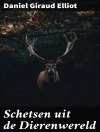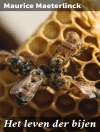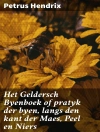In ‚The Life of the Spider, ‚ Jean-Henri Fabre, a pioneering French naturalist, offers an intricate exploration of the world of spiders, blending meticulous observation with vibrant prose. This literary work exemplifies Fabre’s distinctive style, rich in detail and vivid descriptions, which brings to life the behaviors and habitats of these often-misunderstood creatures. The book is situated within the broader context of 19th-century scientific literature, wherein Fabre’s approach not only provides valuable insights into arachnology but also underscores his philosophical musings on nature, reflecting the growing interest in entomology and natural history during that period. Fabre’s career as a schoolteacher and entomologist was marked by a profound dedication to observation and understanding of the natural world, which he deemed essential for fostering a connection between humans and their environment. His passionate studies stemmed from a desire to reveal the complex lives of insects and spiders, demonstrating how their behaviors mirror the intricate intersections of survival, art, and the evolution of life. This book is recommended for those intrigued by the natural sciences, as well as anyone who appreciates beautifully crafted prose infused with insightful reflections on the marvels of nature. Fabre’s vivid narratives compel readers to observe the world around them, inviting them to view spiders not just as creatures to be feared, but as remarkable beings worthy of admiration.
Über den Autor
Jean-Henri Fabre (1823-1915) was a French naturalist, entomologist, and author renowned for his exceptional observational skills and his engaging literary style. Fabre is most widely recognized for his extensive research on insects and is often considered the father of modern entomology. His most celebrated work, ‚Souvenirs Entomologiques, ‚ is a series of texts which detail the lives and behaviors of various insects with meticulous precision and an almost poetic prose. Among these, ‚The Life of the Spider‘ is particularly notable, offering readers an intricate look at arachnid behavior through a narrative that is both scientifically accurate and richly descriptive. Fabre’s exploration into the world of spiders, among other creatures, transcends mere scientific study and enters the realm of literary art. His approach to writing science for a general audience was groundbreaking during his time, and his ability to convey the wonder of the natural world has influenced both scientists and writers alike. Throughout his career, Fabre’s works eloquently bridged the gap between science and literature, a testament to his belief that the study of nature is both a pursuit of knowledge and a profound source of inspiration and reflection for humanity.












